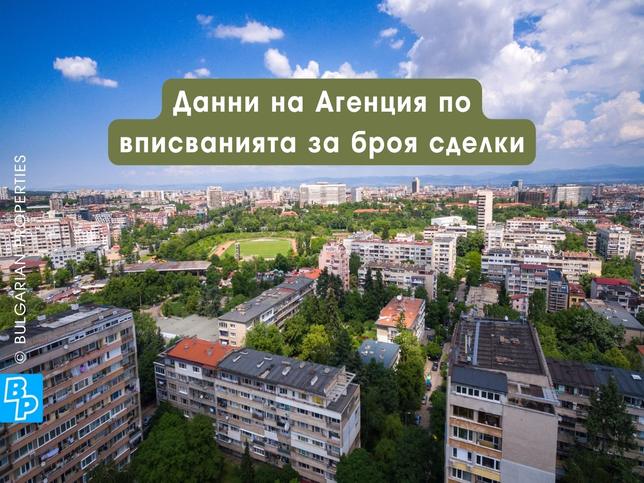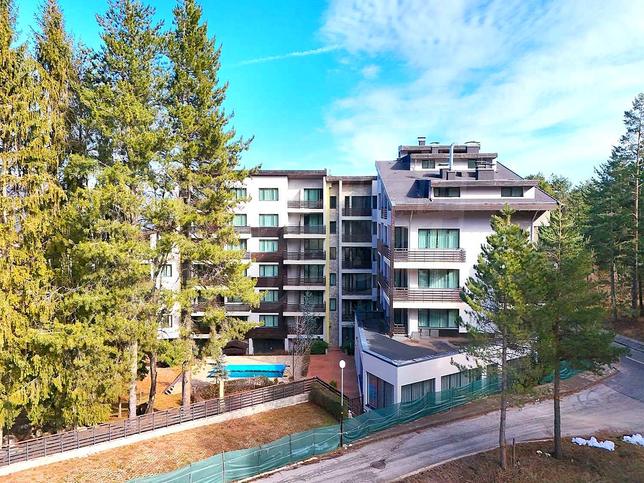Will housing prices in Bulgaria continue to rise?
 Housing prices have increased by 3.9% in the third quarter of 2024 compared to the previous quarter, according to data from the National Statistical Institute (NSI). The largest growth was recorded in Sofia (+5.4%), followed by Varna (+5.3%), Stara Zagora (+4.3%), and Burgas (+4.2%). A decrease was noted in the city of Ruse (-5.9%). On an annual basis, housing prices in Bulgaria have risen by 16.5% compared to the third quarter of 2023.
Housing prices have increased by 3.9% in the third quarter of 2024 compared to the previous quarter, according to data from the National Statistical Institute (NSI). The largest growth was recorded in Sofia (+5.4%), followed by Varna (+5.3%), Stara Zagora (+4.3%), and Burgas (+4.2%). A decrease was noted in the city of Ruse (-5.9%). On an annual basis, housing prices in Bulgaria have risen by 16.5% compared to the third quarter of 2023.

The number of residential property transactions reached 24,923, reflecting a 7.1% increase from the same period last year.
For the first nine months, transactions totaled 68,721 and nearly matched sales for the first nine months of 2022 (71,138), which was a record high for sales in the past seven years.
The value of deals for this period reached over 8.8 billion BGN, surpassing the total for 2023, marking a new record in the real estate market.
The value of transactions concluded for the first nine months of 2024 was 8,819,425,136, which is more than for the whole of 2023 and the highest result ever reported by the market.
Construction activity has also seen growth, with NSI data showing a 1.8% increase in the production index for November 2024 compared to the previous month, specifically in the construction of buildings - by 0.6%, and a 5.9% rise in building construction compared to November 2023.
Across Europe, housing prices have generally been on the rise for the past 14 years. Eurostat statistics show the most significant increases in countries like Hungary and Estonia, where prices have more than tripled. Housing prices in Lithuania, Latvia, the Czech Republic, Austria, Portugal, Bulgaria and Luxembourg. have doubled over this period. Only in Italy prices have fallen, and only by 4%.
In Europe, during the third quarter of 2024, housing prices increased by 3.8% compared to the same period the previous year. However, compared to the previous quarter, prices dropped by 1.4%. Eurostat reports a distinct trend since 2011, with housing prices following a fluctuating pattern, characterised by periods of decline followed by rapid increases. Between 2010 and the third quarter of 2024, housing prices in the EU have risen by 54.1%.
The demand for apartments, especially in large cities, is outpacing supply, which further contributes to price increases. However, are there any downsides when investing in real estate?
In Bulgaria, we mostly see the benefits of buying and owning a home, but there are also some drawbacks. First and foremost, there are the significant initial costs. The investment, especially in large cities, inevitably requires a six-figure sum. Banks require a down payment, and the Bulgarian National Bank officially limited the maximum loan amount last year to 85% of the transaction value. The property often requires finishing work, complete or partial renovation, and furnishing, which must be factored into the final cost.
Real estate is also a relatively illiquid asset, meaning it cannot be quickly sold or exchanged for cash. The ability to quickly trade an asset makes it either liquid or illiquid. This lack of liquidity can be seen as a disadvantage compared to investments in securities.

Real estate prices are also influenced by what happens in the economy. Again, if compared to the stock markets, they are more stable, but economic downturns often lead to an increase in unemployment, and for properties, their prices typically decrease. A property, however, offers greater control as an asset compared to stocks or mutual funds. Additionally, real estate can be beneficial in an investment portfolio for diversification purposes, as it is not influenced by events on the stock markets and thus provides protection during downturns.
If you rent out the property, you are not sure what kind of tenants will use your property. Unreliable tenants can cause property damage and missed payments. This leads to another disadvantage—whether or not you have tenants, there are maintenance and management costs, including time.
If you are considering purchasing property this year, it might be important to know that the industry does not expect a change in the trend of price increases—whether single-digit or double-digit. Property prices follow a variable model and are influenced by economic growth. Last but not least, real estate requires a substantial initial investment, and at the same time, it is an illiquid asset, with ownership also associated with additional costs.
View our properties for sale
Read more news




